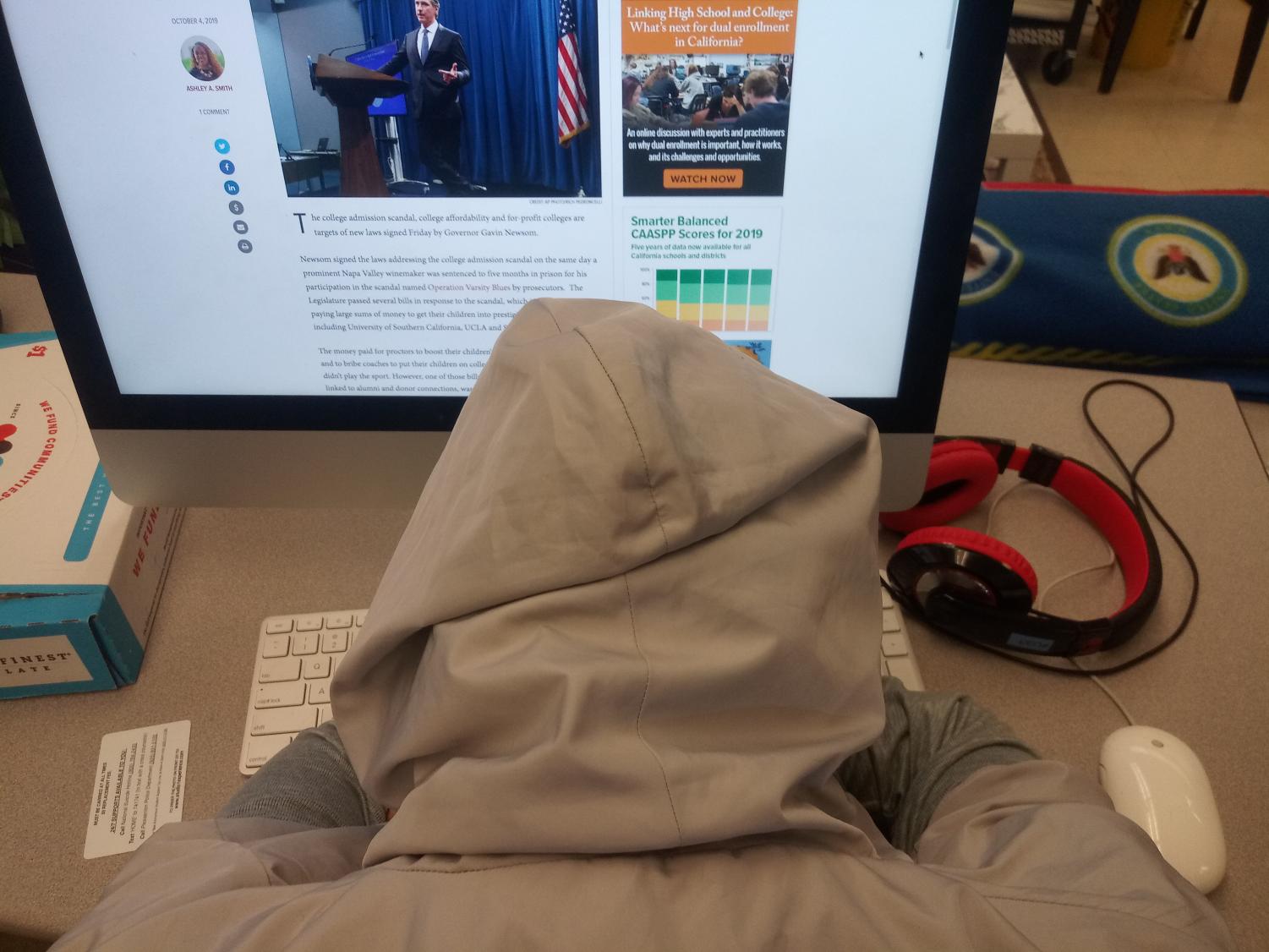Should sleeping during class be offensive?
February 21, 2020
The national sleep foundation reported that teenagers need about 8-10 hours of sleep each night. However, they found that only 15% of teenagers reported sleeping 8.5 hours on school nights. Many sleep even less to stay up doing homework (or playing games). This results in what many teachers find as offensive behavior: sleeping in class. But should sleeping during class be offensive?
YES
Sleep-deprived or just bored in class, you close your eyes for a few seconds to try to get rid of that annoying drowsiness… and the next thing you know, your teacher is standing by your side, trying to wake you up from dreamland.
Students have slept in class ever since the first school was created. But these seemingly innocent classroom naps can send a negative message about how much you care about the class.
“I think sleeping in class is bad because it draws the attention away from the teacher and to the student, which makes the teacher need to interfere and wake the student up. This requires the teacher to restart the learning session and it may take a while to get all of the students’ attention again,” said Josh Asturias (‘23).
Depending on the teacher, seeing a sleeping student may prompt them to change their teaching style or affect their mood, impacting other students.
“Sleeping in class is offensive to us because, as teachers, we put a lot of time and effort into these lessons and when students come in and sleep in class it shows us that our time isn’t valued,” said AVHS English teacher Chelsea Blea.
Teachers are an indispensable part of the education system. It’s crucial that they stay consistent and educate students well, but if we want that to happen, it’s the students themselves that have to be ready to listen first.
Some argue that students who sleep in class are generally very tired from the night before and don’t have ill intentions, but that isn’t sufficient justification.
“If you need rest and are actually tired, you should stay at home where you can get the rest or sleep that you need. When you’re at school and you’re trying to get the rest, you won’t get the quality [learning] that you need,” said Blea.
In order to actually learn in class, students need to learn how to prioritize their own bodies first. Skipping first period is better than going to school and not only getting poor rest, but possibly being written up or reprimanded.
It’s plain that sleeping in class is disrespectful and disrupts the classroom and learning atmosphere. To stop students from falling asleep, society needs to start normalizing the prioritization of students’ health before their academics, and recognize that some days, getting a good education means staying home for an extra snooze.
NO
Today’s education system demands excellence from its students. For many, life becomes a race of getting the best grades, checking off extracurriculars, and driving oneself to the top. As a result, students today are more tired than ever.
Published by the Centers for Disease Control and Prevention, a 2015 survey estimated that around 73 percent of high school students don’t get enough sleep on an average school night. According to Nationwide Children’s, teenagers need between 9 and 9 ½ hours of sleep, but average between 7 and 7 ¼.
To put it simply, students are exhausted and overworked. Accidentally dozing off in class isn’t a rare anomaly, but rather, a direct product of the strict culture aimed at students today.
“People don’t really fall asleep on purpose. When it happens you can’t really stop it from happening, so [sleeping] isn’t rude because they aren’t doing it intentionally,” said Jessie Chan (’23).
It’s easy to argue that lacking sleep is simply a product of mismanaged time, but students are constantly balancing their hobbies, free time, schoolwork, and sleep. Add that to already heavy homework loads, overstudying for tests due to the immense pressure behind getting good grades, and time-consuming extracurriculars, and it’s no surprise that many students suffer from sleep deprivation.
The fact is that napping in class is neither an intended insult to the teacher or an indicator of the level of interest a student has for a subject. It’s a side-effect of a bigger issue: the current system of education and its punishing student culture.
“I don’t think that sleeping in class is offensive. I think it’s a sign that students need more sleep, and they may be going through something else, and that they may need some support for me in either how they schedule themselves, or maybe talking to someone at home to find out how we can get them to rest more. It’s also a sign that schools need to start later for students to get more sleep, but it’s very difficult to make changes to that. I don’t find it offensive but I try to find ways I can help my students stay awake in class,” said AVHS Spanish teacher Patty Carpenter.
Thus, teachers ought not be offended or angry when a student falls asleep in their class. It’s understandable to be upset at a student neglecting a carefully-prepared class, but it’s also understandable for students to doze off occasionally after pulling an all-nighter. I am not advocating for unabashedly sleeping in class. But when a typically responsible and attentive student simply can’t help nodding off, it’s more productive to wake them up with a kind smile and tell them to wash up in the restroom than to punish them with a referral or a detention.
